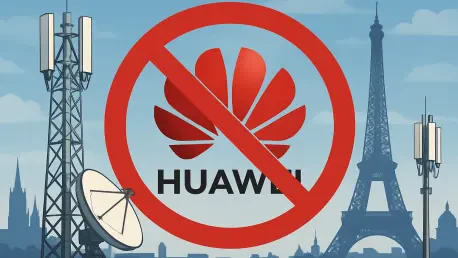In a rapidly evolving global telecom landscape, a pressing debate has emerged over the presence of Chinese vendors like Huawei and ZTE in European networks, with Nokia’s CEO Justin Hotard recently igniting controversy by urging European officials to exclude these companies deemed as “high-risk.” Speaking at the opening of Nokia’s new research campus in Oulu, Finland, Hotard pointed to the stark imbalance in market access, noting Nokia’s dwindling share in China at just 3%, while Chinese firms continue to operate in various European regions. This disparity raises critical questions about fairness and reciprocity in international trade. As geopolitical tensions simmer and national security concerns mount, the call for a European equivalent to the U.S. “rip and replace” program—designed to purge Chinese equipment from telecom infrastructure—has gained traction. This issue sits at the intersection of economic competition and strategic imperatives, demanding a closer examination of the stakes involved.
Security Concerns Driving the Debate
The push to restrict Chinese telecom vendors in Europe is deeply rooted in mounting apprehensions over national security and data integrity, which have become paramount in an era of digital interconnectedness. Over recent years, multiple European nations, including the UK and Germany, along with nine other EU countries, have imposed bans or severe limitations on Huawei and ZTE in their 5G networks, largely influenced by pressure from successive U.S. administrations highlighting potential espionage risks. These concerns are not merely speculative; they are backed by initiatives like the U.S. Federal Communications Commission’s multi-billion-dollar effort to eliminate Chinese gear from American systems. However, the lack of a unified policy across the EU remains evident, as some countries, such as Spain, still engage with Huawei through partnerships with local operators like Telefonica. This inconsistency underscores a fragmented approach to a critical issue, where security imperatives clash with existing commercial ties, complicating the path to a cohesive regional strategy.
Economic Motives and Market Dynamics
Beyond the realm of security, the advocacy for banning Chinese telecom vendors in Europe also reveals underlying economic motivations and competitive strategies, particularly from companies like Nokia seeking to strengthen their foothold in a struggling industry. Industry analyst Daryl Schoolar from Recon Analytics suggests that Hotard’s stance is not solely about safeguarding networks but also about leveraging regional pride to bolster Nokia’s market position against a backdrop of underperforming mobile infrastructure sectors and cautious outlooks for future 6G investments. The disparity in market access—where European firms face significant barriers in China while Chinese companies operate in parts of Europe—fuels arguments for reciprocity and protectionism. This perspective highlights a dual agendwhile genuine security risks persist, the drive to exclude Huawei and ZTE may equally serve as a strategic maneuver to favor local vendors like Nokia and Ericsson. As the debate unfolds, it becomes clear that resolving this issue requires balancing legitimate safety concerns with the economic interests shaping the telecom landscape.









